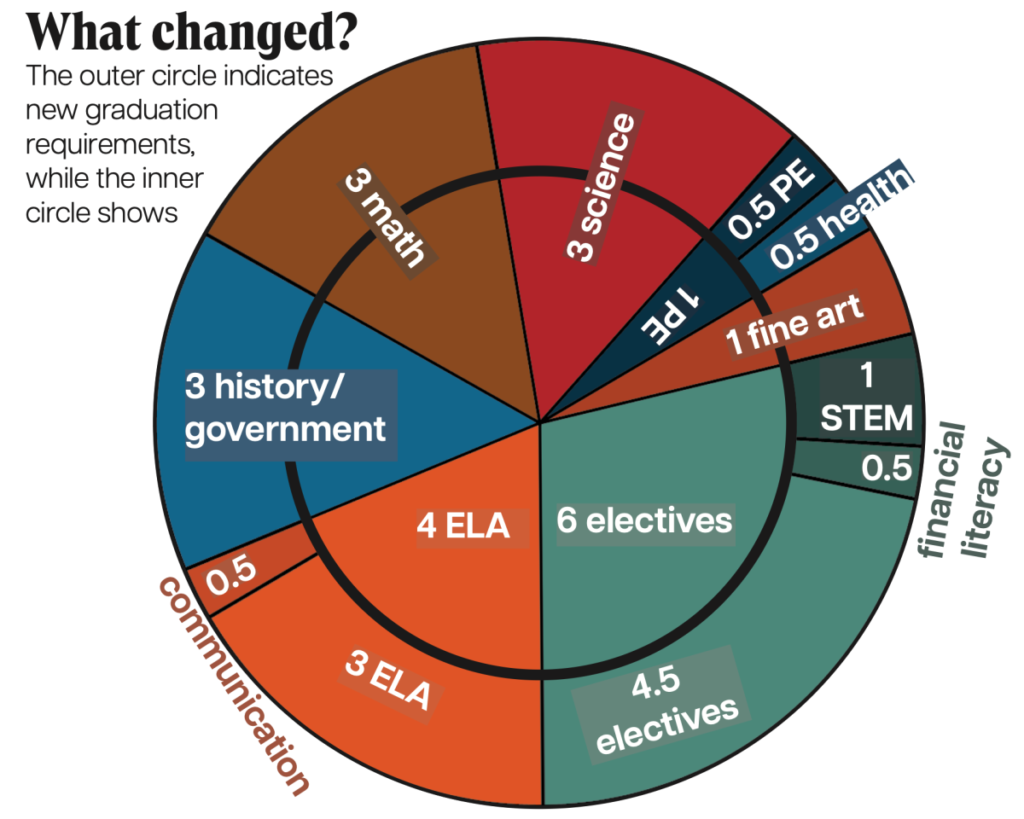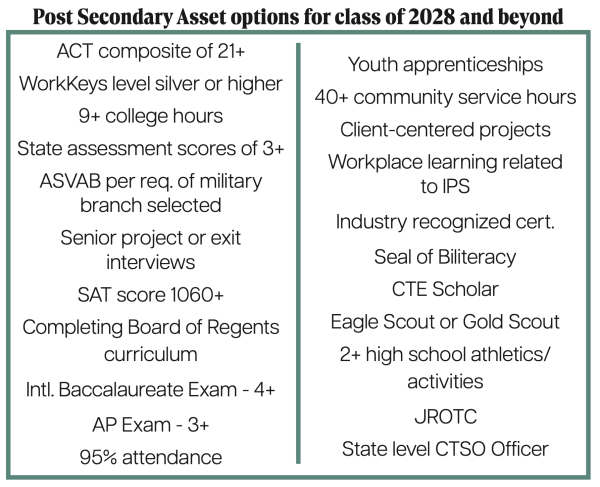
After a school board meeting held on May 14, 2024, all schools across Kansas, specifically, classes of 2028, are now required to obtain their credits by new essential courses. These requirements were originally created by KSDE’s Graduation Task Force to encourage students to get financial aid for future education plans.
With these changes now implicated, students could possibly have some things to reconsider.
“It’s kind of intimidating, honestly. And I don’t want to say it’s not fair, but it’s difficult” Freshman Kalie Boyack said.
New courses such as needing to take 1 credit of communications can seem menacing toward primarily reserved students. As well as, needing postsecondary assets such as but not limited to, getting 40 or more hours of community service hours, 95% attendance rate, and/or 9+ hours of college classes. And adding a .5 credit of health, which is now separate from P.E.
“Well the health class that’s required, I think it’s good because they spread awareness for mental health because some kids don’t know how to take care of themselves very well. Either they haven’t been taught then or that’s just not how they were raised,” Freshman Miley Holland said.
The updated requirements were first introduced by the KSDE’s Graduation Task Force and Kansas Board of Regents (KBOR) in order to assist incoming students with potential future education-related plans.
However according to the Kansas State Department of Education website, the KSDE and KBOR wished “to encourage students to apply for financial aid for their postsecondary education plans.”
And the two departments were aware of how they wanted to assist students in pursuing their future plans. They had the money to put the intended plan into motion.
The KBOR also reported that, “$40.5 million of federal aid went unused by Kansas students who graduated from high school in May of 2023,” and decided to use the money as, “a vehicle for students to pursue their higher education who might not otherwise be able to afford it.”

While the idea is extremely helpful and considerate, opinions on the change have appeared. But regardless, most students were unaware of the changed requirements.
Few students had heard rumors of the possible changes but most responded with, “I don’t know. They didn’t tell us any of these,” like Holland said.
But once getting to know the criteria, opinions relating to how the changes could affect freshman and future students in both positive and negative ways.
“It’d definitely be tough for some people who are doing well in school. Because it’s just more requirements that they would have to do outside of school,” Freshman Cameron Gibson said .
Students could agree on new things that now have to be considered, and are intimidating. But they can also be helpful for students.
“I know some classes are harder than others, and it might help getting them to like classes,” Boyack said.
While considering the good and bad of the changes, some students were really indifferent with the changes.
“I mean, I’m okay with it. It’s just more stuff that’s required and everything, but it helps out the community,” Gibson said.
